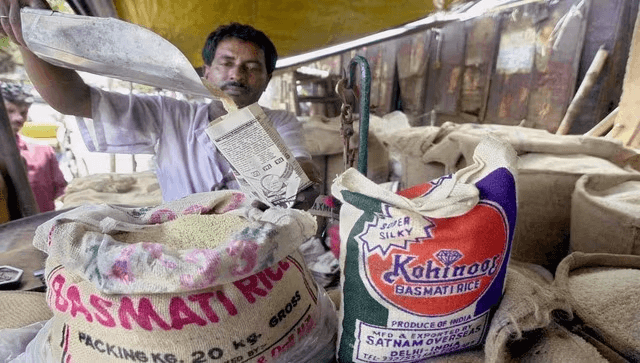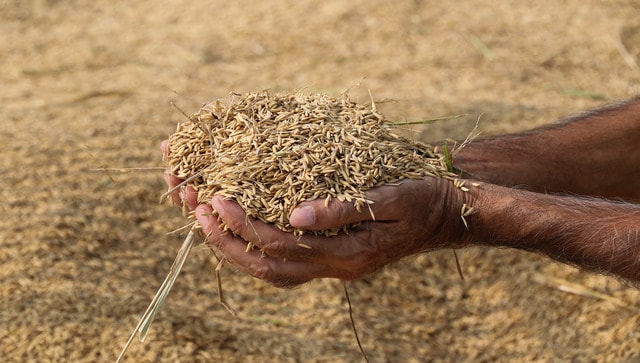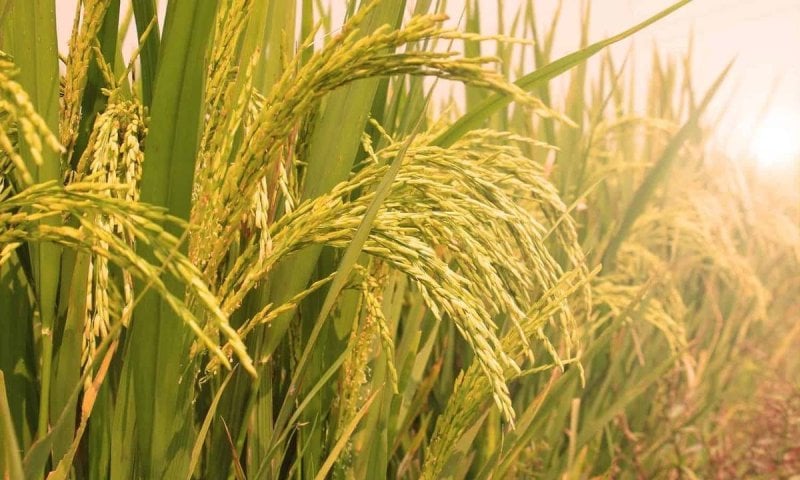Tags
How Red Sea attacks could raise export prices of Indian basmati rice
A prolonged disruption to the supply of goods in the Red Sea due to attacks by Yemen’s Houthi rebel group could lead to New Delhi considering an alternate route along Africa for shipments of basmati rice, which could enhance prices by about 15-20 per cent

The Red Sea attacks by Yemen’s Houthi rebels could affect the shipment of Indian basmati rice. AFP (Representational Image)
The attacks on commercial ships in the Red Sea by Yemen’s Houthi rebel group could become a headache for India. The Houthis have targeted over a dozen vessels, which it believes to be linked to Israel, since October to express solidarity with Gaza which has been attacked by the Israeli military.
These attacks in the Red Sea is likely to have an impact on India’s basmati rice shipments. The Red Sea is one of the key routes for oil and liquefied natural gas shipments, along with consumer goods. It is also important to enter and leave the Suez Canal, which is a crucial sea link connecting Asia and Europe.
Amid these attacks, several major shipping companies have halted shipments via the Red Sea. The alternative route, which goes around the Cape of Good Hope, not only adds 3,500 nautical miles to the journey but is also more expensive.
Let’s take a look at why the conflict in West Asia has alarmed shippers of basmati rice and how Red Sea attacks could hit Indian exports.
Will prices of basmati rice surge?
The Red Sea attacks could affect the shipment of Indian basmati rice. A senior official with a government agency told Indian Express that the change of route by major shipping lines to avoid the Red Sea is projected to increase the price of Indian basmati rice exports by 15 to 20 per cent.
This could further impact India’s exports of the aromatic long grain to Egypt and European countries. However, the demand for basmati rice is unlikely to be hit unless the disruptions in the Red Sea persist for a prolonged period.
“Demand for basmati rice, especially in the Middle East (West Asia), is unlikely to be impacted with a 20 per cent price rise. However, if the disruptions in the Red Sea persist, prices could be hiked further,” a government official was quoted as saying by Mint.
Speaking to Reuters, a source said India may consider an alternate route along Africa for shipments of basmati rice if attacks by Iran-backed Houthi rebels continue.

The targeting of commercial ships in the Red Sea by the group in Yemen has reportedly hit exporters in Haryana’s textile hub Panipat and those in the state shipping basmati rice due to a spike in freight charges and long delays.
The Red Sea is crucial for India’s sea trade to Africa, West Asia and the European Union.
Vijay Setia, former president of All India Rice Exporters’ Association, told ThePrint that out of the total rice exports from Haryana, about 80 per cent goes to West Asia and the rest to Europe and the United States. “Ever since disturbance started in the Red Sea and Yemen’s Houthi rebels started attacks on cargo ships, freight per container for the Middle East has gone up from $600 to $2,000. Similarly, shipments for Europe and US that used to pass through the Suez Canal are now taking a longer route and ships are going around the Cape of Good Hope, at the bottom of South Africa,” he said.
“This is not only delaying the cargo but the freight that used to be between $2,000 and $2,500 has jumped to $5,500 and even to $6,000 in some cases,” Setia further explained.
Kedar Kohli of ORM Overseas, a basmati trader, told Hindustan Times (HT) that exporters could switch to alternate routes, which may escalate shipment costs, “depending on how much longer the supply lines are and how higher insurance costs”.
In an interview with News9 Plus, Captain Sanjay Prashar, a shipping expert, warned the situation could continue for the next two-three months.
“We are already seeing the freight raise from $40,000 to $60,000 per day for the tankers which is about two million barrel. Secondly, in the container trade we are seeing the freight rise in some particular sectors going up to 44 per cent. Of course, it was in the pre-COVID-19 or during the pandemic that we had seen something which had never happened before with respect to containers,” Prashar said.
“So, with the movement of basmati rice containers or other export, please understand that one-third of the world’s trade which moves through the Suez Canal is impacted and India is impacted the most. So, 10 days of extra voyage via the Cape of Good Hope is as good as an extra $1 million. The fear psychosis has started working on the commercial sector,” he told News9 Plus.
Impact on Indian exports
The Red Sea attacks could raise India’s troubles which is already staring at a likely deficit of $4 billion to $5 billion this year, according to Reuters.
India, which is the second-largest producer of wheat, rice and sugar in the world, has put restrictions on the export of these items to control a rise in domestic prices. In July, New Delhi banned the export of non-basmati white rice.
Last September, India had stopped the shipments of broken rice, along with imposing a 20 per cent duty on exports of various grades of the grain. However, parboiled rice and basmati rice are not included in the export ban.
This year, India exported about $3.38 billion worth of basmati till 15 November, as per the HT report. There was an upswing in demand for Indian basmati rice this season from buyers in West Asia.

However, Rajesh Agarwal, an additional secretary in the trade ministry, told Reuters that India expects the rise in exports of other farm commodities to balance the export deficit this year.
“If we remove agricultural commodities whose exports are controlled, like wheat and rice, exports are growing by over 4 per cent”.
“So, despite the shortfall of about $4 billion to $5 billion that we face because of restrictions on sugar, wheat, rice, we should be able to meet last year’s export levels,” Reuters quoted him as saying.
According to the state-run Agricultural and Processed Food Products Export Development Authority (APEDA), the exports of meat and dairy, cereal preparations, and fruits and vegetables reported a surge between April and November this year.
https://www.firstpost.com/explainers/how-red-sea-attacks-could-raise-export-prices-of-indian-basmati-rice-13547432.htmlPublished Date: December 26, 2023






